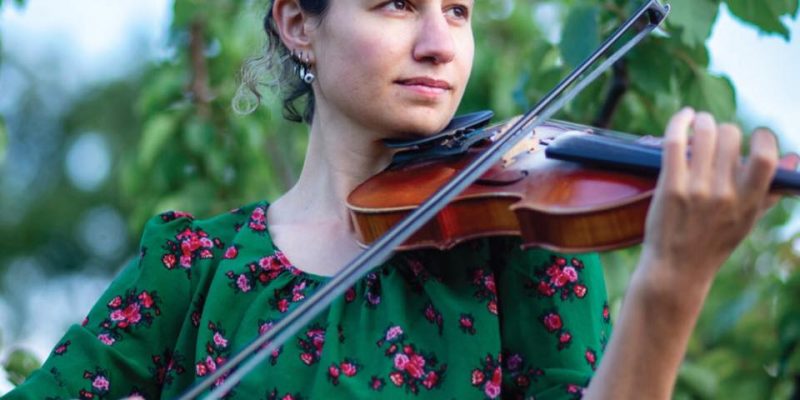What would it be like if klezmer music’s geographic and historical continuity had never been interrupted? Today I talk to violinist, composer, educator, and researcher Zoë Aqua about her experiences researching Jewish and non-Jewish music in Transylvania and surrounding regions in Hungary and Romania. These are regions where musicians have been exceptionally successful at keeping regional styles and repertoire alive and transmitting them to new generations. Some of these musicians know and transmit specifically Jewish music from their families or where they live. It’s both a perfectly complementary experience to how we nurture and grow our klezmer and Yiddish worlds, and a completely different experience to how we are able to do things.
Zoë and I talk about how she ended up doing this research on a Fulbright fellowship that’s now in its second year. How she is following in the footsteps of many other klezmer musicians, often string players, who have gone to learn the many styles of this region that sometimes feel like distant cousins to our klezmer, as well as learning unique Jewish repertoire from different masters. It’s a pile of fun and wild stories and a lot of food for thought about cultural continuity and transmission. We end by talking about hopes and dreams for how we pass on knowledge in our own community and what new ideas have emerged for Zoë during her time there.
We also talk about her new album on Borscht Beat, In Vald Arayn, which features her original klezmer compositions inspired by Translvanian sources and played by a great band of musicians who are fluent in the music styles of the regions where she’s living. On this album, Zoë is imagining new alternate realities of musical paths and combinations of cultures that once lived side-by-side and then making them real for our enjoyment. It’s great music and I hope you check it out.
Radiant Others is produced by Dan Blacksberg and Beila Ungar. Please support our work on https://www.patreon.com/RadiantOthers.
Podcast: Play in new window | Download
